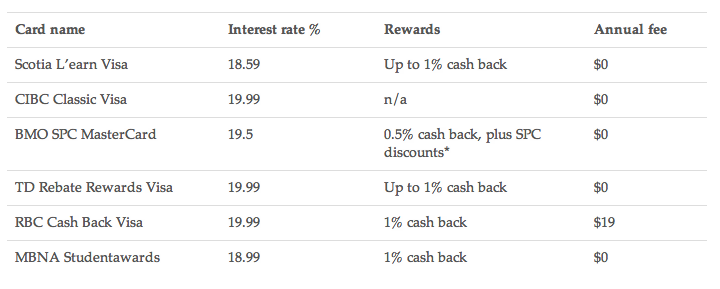One of our favorite new discoveries is 6400 Personal Finance, whose author has zero patience for people who insist on living their financial lives passively; being done unto instead of taking charge. He recently said something so pithy, so brilliant, that we’re angry we didn’t think of it first. Paraphrasing, he says building wealth is offense. Saving and conservation are defense. It takes both to win.
Yet if you listen to most people – self-styled experts, your peers, the man on the street – almost all of them concentrate on the subtractive side of the ledger. Defense. How to save money. How to cut your expenses. How to cram 4 people into a house barely half the size of a basketball key.
How did we get here? If you’ll excuse another sports analogy, there’s an old bromide that “90% of baseball is pitching and defense.” Which makes as much sense as saying that 90% of a magnet is its north pole. Most adults who take that axiom on faith don’t realize that it’s a lie intended for children. When you’re 8 years old, swinging a bat and being the center of attention is fun. Standing in left field waiting to make a play on a ball that might never come is less so. Therefore Little Leaguers need to be convinced that focusing on the latter will help them win games. The kids won’t internalize the saying, but if you repeat it enough then hopefully it’ll tip the scales a little and the kids will start hustling when they’re in the field.
Even those of you who didn’t play organized sports are conditioned to act defensively. To refrain from doing the dumb activity, as opposed to undertaking the smart activity.
Somewhere along the line, people twisted the definition of “economize”. It used to mean doing as much as possible with what you have. Now, it seems to mean doing as little as possible with what you have. Just read this sturdy fellow who apparently has decent income, a reasonable net worth and zero debt, yet spends his free time collecting rocks by the side of the road because it doesn’t cost anything.
Why are people so reluctant to build, rather than to preserve? Because offense isn’t immediately easy to grasp, as defense is.
Defense is reactionary. Defense means anticipating what’s coming, and plotting to combat it and minimize any damage. Offense is creative. It means relying on your skills, expertise and experience to do something remarkable. (You have to rely on yours, as opposed to anyone else’s, because God knows no one else is going to go out of his way to help you build wealth.)
Is offense riskier than defense? Of course it is. But the great irony about shifting your focus to offense is that if done correctly, playing offense shouldn’t take any more effort than playing defense does.
Playing good defense means:
- Making sure your boss sees you come early and stay late, even though you’re getting no immediate reward out of it.
- Doing everything that’ll result in a good performance review, in the hopes that the next promotion has your name on it. Which it well might, assuming that your boss’s fraternity brother’s unemployed daughter doesn’t decide that she might like to try her hand at whatever it is you do for a living.
- Economizing for its own sake. Having the wherewithal to afford a nicer house or a better car, but refusing to just because you’d rather hold onto the money. Even though you have no idea what to do with said money.
Playing good offense means:
- Taking those extra uncompensated hours you would have spent at the office, and using them to learn about the stock market. Even having the Fox Business Network on in the background while you passively listen to the hosts and analysts will give you at least the basis of an idea of what building wealth entails, and expose you to the jargon. Ask the folks at Rosetta Stone – total immersion is the only way to learn a new language.
- Getting pre-approved for a mortgage. You can’t buy your first house without one (unless you pay cash, which probably means you’re already rich.) Nor can you buy your second house without one. In the first case, you’re throwing off the tyranny of renting. In the second, you’re making it easier to eventually build another investment that, if done correctly, will mean far more to your bottom line than will pleasing your superiors at your place of employment.
- Setting up a limited liability company (Hey, we have a book about this)
- Taking the money you’ve saved via your commitment to defense, and doing something with it that requires more thought than just sticking it in a savings account. Or even a CD. Or even a 401(k).
None of this is hard, but it’s out of the ordinary. It comes with the possibility of greater rewards way in the future. So far off in the future, in the eyes of the unimaginative, that they can’t see it. Better to apply yourself to what you know and stay in your comfort zone. Even though that doesn’t come with any guarantee, either.
If you think that your income should derive solely from the sweat of your brow, you’re living in the wrong millennium. Rich people don’t feel guilty for leveraging their time and money. They can’t. They understand that it’s the only way to get rich.
We’ve said this before, but here it is again using a different example. Sergey Brin started with nothing extraordinary, and is maybe 100,000 times richer than you. Does that mean he works 100,000 times as hard as you do? No, that’s impossible. Does it mean that he’s been allotted 16,800,000 hours each week, instead of the 168 the rest of us get? No. But it does mean that he isn’t relying on his salary, handsome as it may be, to build wealth.
Make it a moral imperative to find other sources of income, rather than to merely cut back. Any idiot can squeeze a penny, or tell you how to, and plenty of idiots do.
Unfortunately, the English language is limited in that what we’re advocating is known to the world as “passive” income. From one angle, that makes sense. “Passive” as distinguished from “active”, referring to income earned directly from work.
But again, people have misinterpreted what should be obvious. They take “passive” income to mean that they don’t have to do anything to earn it. Or that passive income isn’t even truly “earned” in the conventional sense. Even the IRS agrees with this assessment, having classified an entire set of income as “unearned” and implemented a structure for taxing it.
Passive income takes plenty of effort to achieve. It requires not just some higher-order thinking, but the fortitude to see that thinking through. It means disabusing yourself of the idea that the two most important things in the universe are a) avoiding getting fired and b) spending as little as possible.
Spending as little as possible is swell, if you want to live a boring life. Worthwhile things, both goods and services, cost money. Buying some of them will result in no discernible increase in your net worth (e.g. a trek to the Central African Republic, a new ensemble at Chico’s.) Buying others will (e.g. the services of a fee-only financial advisor, a house with a greater potential for appreciation than a cheaper house that you’d otherwise buy.) But again, this post isn’t about saving money, especially not as an end unto itself. It’s about learning how to build more wealth, and not relying on external forces to do it for you.
Download one of our ebooks to get started. It’ll take less time to read than the hours you’d lose by working through lunch a couple of times.





